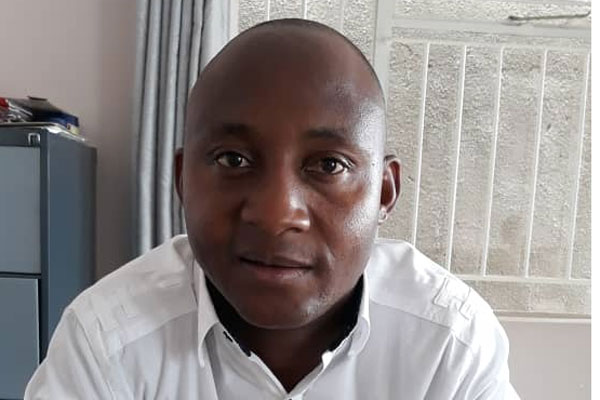
health talk:with Dr Johannes Marisa
Outbreaks have been there for quite a long time degenerating into pandemics. The end of the First World War in 1918 marked the beginning of yet another serious disaster for the world when H1NI swept across the globe from Spain. It came to be called Spanish flu, the worst outbreak in the history of health. Close to 50 million people died, which was about 2,75% of the world population of 1,8 billion by then. That was a tragedy. This was not the end of things as in 1968, there was Hong Kong flu, which killed between one and four million people, the Russian flu of 1977-78, which killed about 700 000 globally. Russia had again experienced another flu in 1889-1894, which shook the entire world. Close to one million people died from this. That was the time of Cecil John Rhodes when public health measures were seldom observed.
Coronavirus again started in Asia, in China on December 31, 2019 in Wuhan city. What started as mere flu went on to give complications, which included respiratory distress, pneumonia, renal failure and death. Everyone hankered to know much about the Covid-19. The reproductive number is between one and four.
The spread was meteoric with more than 124 countries now affected. Africa remains relatively safe, with South Africa now having more than 13 cases, while the majority of African countries remain mum on the prevalence of the disease.

How safe is Africa?
As of now, Africa remains safe if the availed statistics are to be believed. So, many theories have been put forward, which include the high temperatures in Africa at the moment, which destabilises the coronavirus and the issue of black pigment on our skin. By last week 11 African countries had reported positive cases with Egypt leading with more than 55 cases and one death. Low tourism in Africa contributing to merely 5% of the world is a factor accompanied by the fact that only 4% of migrant Chinese are in Africa. Other affected countries are Algeria, Tunisia, Senegal, Morocco, South Africa, Cameroon, Togo, Burkina Faso and the Democratic Republic of the Congo. Nothing has so far been validated. There may be reasons why correct figures may not be availed to the nation:
Failure to detect patients who are positive: This can be attributed to lack of reliable tests and flawed surveillance systems Deliberate manipulation of figures: This can be done by some governments in order to protect their images.
- Chamisa under fire over US$120K donation
- Mavhunga puts DeMbare into Chibuku quarterfinals
- Pension funds bet on Cabora Bassa oilfields
- Councils defy govt fire tender directive
Keep Reading
If Zimbabwe has no single case of coronavirus infection, then that will be a blessing to all of us. This might be true considering the low trafficking of people from countries like China, Italy, Iran and Thailand. Our chances remain quite slimmer as compared to South Africa, which has the busiest airport in Africa where every five minutes, an aeroplane takes off. This means that poverty to a certain extent has actually helped in containing coronavirus. The US is struggling with the spread, with more than 1 000 cases so far while Italy is quaking with more than 8 000 cases and very high case fatality ratio. The World Health Organisation (WHO) has applauded Africa for what it says are comprehensive measures to keep the coronavirus away, but are we doing enough? The answer should be a NO. The following measures ought to be in place if the virus is not to wipe Africa, Zimbabwe included:
lScreening tests should be done at ports of entry like Robert Gabriel Mugabe International Airport: Suspected people who harbour some symptoms should be quarantined for at least 14 days. Those people coming from high-risk countries like China, Italy, Iran, France and Thailand should be properly screened and close surveillance done. It should be prudent to stop people of these nations from entering Zimbabwe as of now.
lSensitisation of the communities about coronavirus should be a priority. Any suspicious cases should be reported to responsible authorities. Zimbabwe should have national, provincial and district treatment centres. If a suspicious case is seen in Gutu, then it does not make sense to transfer the patient to Wilkins.
lStaff should be trained about handling coronavirus patients. Interpretation of results should be done well. Currently, there is polymerase chain reaction, which takes between 4-10 hours to get results. It would be very much welcome if rapid tests are validated as soon as possible as results may come in less than 15 minutes.
lHotlines should be established in order to allow for easy communication in case some people would require assistance from anywhere.
lWell-equipped ambulances should be in place with the necessary protective clothing for clinicians so that transmission is reduced. Ambulance service seems to be lagging behind in Zimbabwe at the moment as very few ambulances are available locally.
lReady availability of drugs and sundries that include drips, masks, gloves and other protective regalia.
Now that coronavirus has been declared a pandemic, do we have the above things in place, lest we can be wiped out? Check out, coronavirus is real! Till next week!
lDr Johannes Marisa is a medical practitioner, a public health expert and educationist who can be accessed on [email protected].











